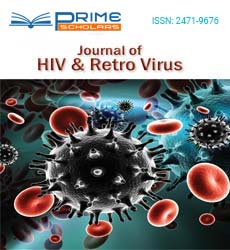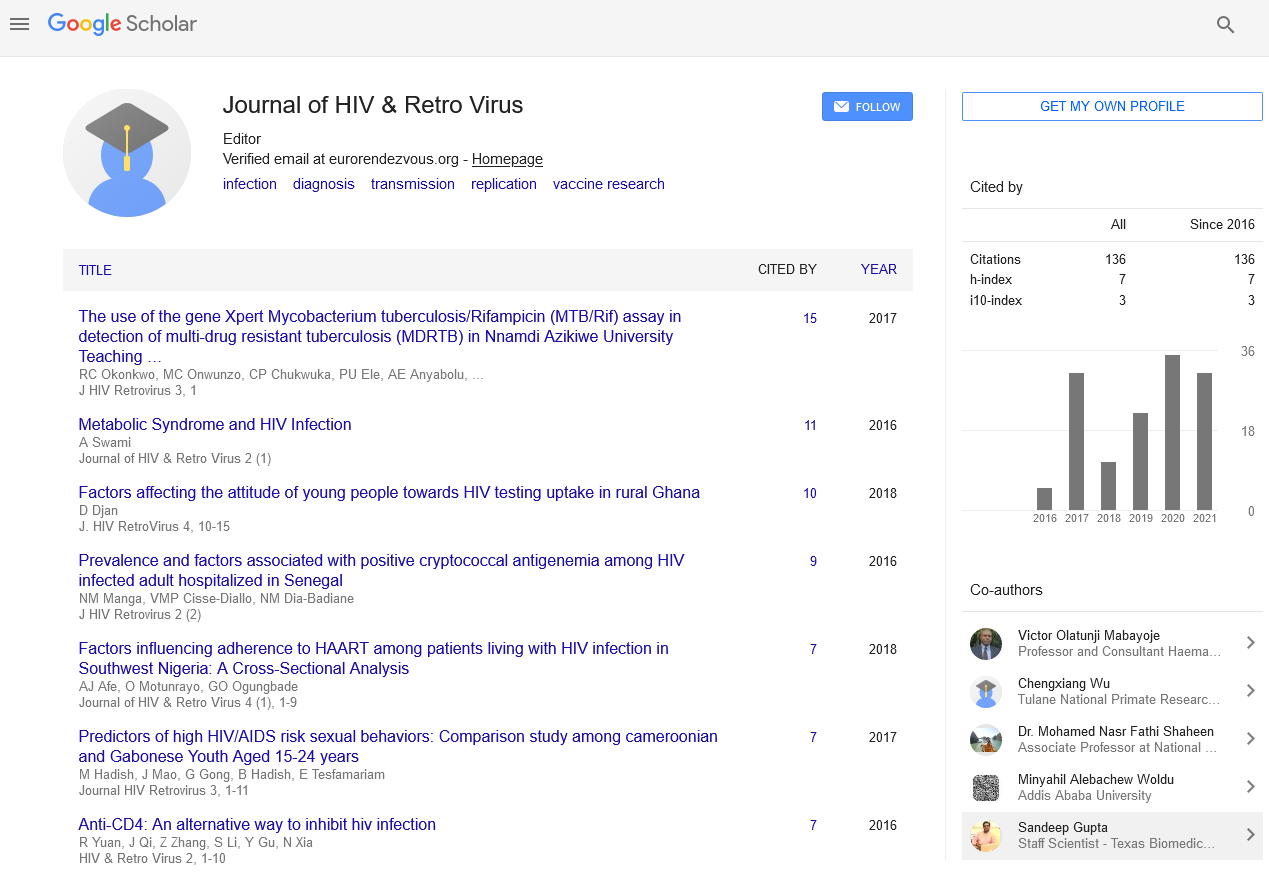Short Communication - (2023) Volume 9, Issue 2
Advances in Vaccine Research: Pioneering Health and Global Resilience
Davey Smith*
Department of Epigenetics, University of Texas, United States
*Correspondence:
Davey Smith,
Department of Epigenetics, University of Texas,
United States,
Email:
Received: 29-May-2023, Manuscript No. IPJHRV-23-17489;
Editor assigned: 31-May-2023, Pre QC No. IPJHRV-23-17489;
Reviewed: 14-Jun-2023, QC No. IPJHRV-23-17489;
Revised: 19-Jun-2023, Manuscript No. IPJHRV-23-17489;
Published:
26-Jun-2023, DOI: 10.21767/2471-9676.9.2.20
Introduction
Vaccines stand as one of the most profound achievements in medical history, transforming the landscape of public health and saving countless lives. Vaccine research, a dynamic and evolving field, has paved the way for the prevention and control of numerous infectious diseases that once ravaged populations. This essay explores the critical role of vaccine research in shaping public health strategies, fostering global resilience, and addressing emerging challenges. The roots of vaccine research trace back to Edward Jenner’s successful smallpox vaccination in the late 18th century, a pivotal moment that laid the foundation for immunization practices. Since then, vaccine research has progressed from empirical experimentation to rigorous scientific endeavors [1].
Description
The introduction of vaccines against diseases like polio, measles, and tetanus marked significant milestones in reducing global morbidity and mortality rates. Vaccines have brought about a paradigm shift in disease control. They empower individuals to develop immunity against pathogens without enduring the full-blown illness. Through widespread vaccination campaigns, many once-deadly diseases have been virtually eradicated or significantly reduced in prevalence. For instance, the near eradication of polio showcases how vaccine research can catalyze coordinated international efforts. Vaccine research has evolved in tandem with scientific advancements [2,3]. Techniques such as recombinant DNA technology and reverse genetics have enabled the creation of safer and more effective vaccines. Modern vaccines often utilize subunit proteins, viral vectors, or nucleic acids to stimulate immune responses. The rapid development of COVID-19 vaccines, utilizing messenger RNA technology, exemplifies the agility of vaccine research in responding to emergent threats. Despite remarkable progress, vaccine research confronts several challenges. Vaccine hesitancy, fuel by misinformation, poses a threat to achieving
high immunization coverage. Researchers must engage in robust communication and education efforts to build public trust. Additionally, the ever-evolving nature of pathogens demands continuous adaptation of vaccines to counter mutations and emerging diseases. Vaccine research holds the potential to address health disparities and promote equity. International collaborations have facilitated the distribution of vaccines to resource-limited regions, bridging gaps in access to healthcare. Initiatives like the COVAX Facility emphasize the importance of fair distribution, aiming to ensure that even the most vulnerable populations receive protection. The future of vaccine research is promising and multifaceted. Personalized vaccines tailored to individual genetic profiles could enhance efficacy and reduce adverse reactions [4]. Moreover, the integration of artificial intelligence and machine learning can expedite the identification of potential vaccine candidates and predict disease outbreaks. As research delves deeper into understanding the immune system, novel avenues for vaccine development may emerge. Notwithstanding, the main thing to remember is that handicap influences everybody in an unexpected way. Because of the range of incapacities, it is extremely extraordinary for two individuals to have a similar inability. Idea of handicap in the media to tell the truth, inability is seldom precisely portrayed in the media. Furthermore, whether or not handicap is portrayed unequivocally, it, generally speaking, isn’t in a very practical way. For the most part, the media tries to tell the story of injured people without truly portraying crippled people.
Conclusion
Vaccine research stands as a beacon of human achievement, revolutionizing public health and safeguarding the well-being of populations worldwide. Its impact on disease prevention, health equity, and global resilience is immeasurable. As vaccine researchers continue to innovate, collaborate, and adapt to emerging challenges, they hold the key to a healthier and more secure future for humanity.
Acknowledgement
None
Conflict Of Interest
The author declares there is no conflict of interest.
References
- Kanar BG, Tigen MK, Sunbul M, Cincin A, Atas H, et al. (2018) The impact of right ventricular function assessed by 2-dimensional speckle tracking echocardiography on early mortality in patients with inferior myocardial infarction. Clin Cardiol 41(3): 413-418.
[Crossref] [Google Scholar]
- Zavaleta NS, Velasquez PJ, Nieto RG, Camacho GC, Pinot ES, et al. (2022) Right atrial and right ventricular function assessed by speckle tracking in patients with inferior myocardial infarction. Rev Cardiovas Med 23(4): 123.
[Crossref] [Google Scholar]
- Anavekar NS, Skali H, Bourgoun M (2008) Usefulness of right ventricular fractional area change to predict death, heart failure, and stroke following myocardial infarction (from the VALIANT ECHO Study). Am J Cardiol 101:607-612.
[Crossref] [Google Scholar]
- Kazi SP, Geenty D, Selvakumar A, Ferkh J, Chong L, et al. Right ventricular strain in the STEMI population.
Citation: Smith D (2023) Advances in Vaccine Research: Pioneering Health and Global Resilience. J HIV Retrovirus. 9:20.
Copyright: © 2023 Smith D. This is an open-access article distributed under the terms of the Creative Commons Attribution Li�cense, which permits unrestricted use, distribution, and reproduction in any medium, provided the original author and source
are credited.

